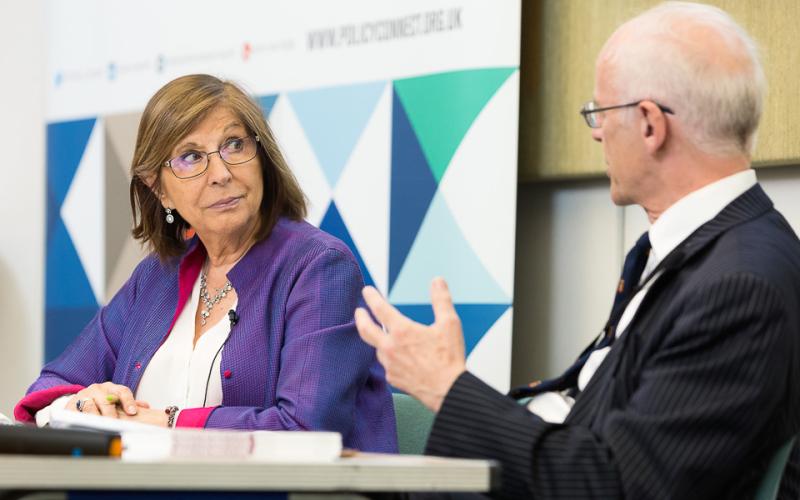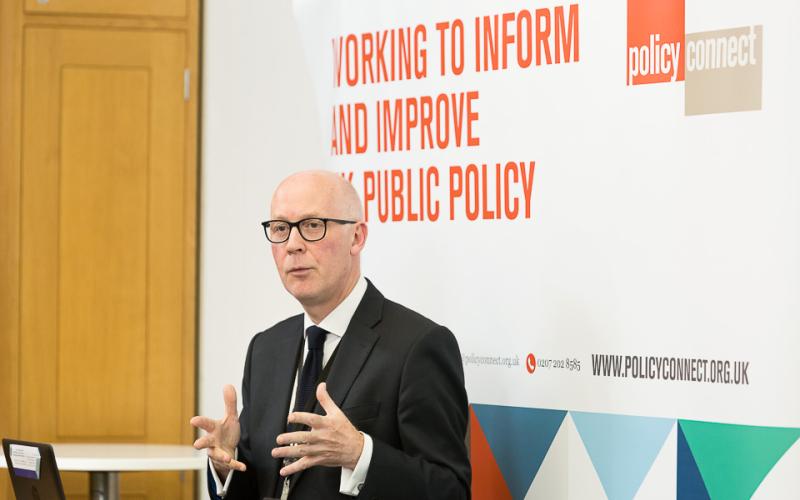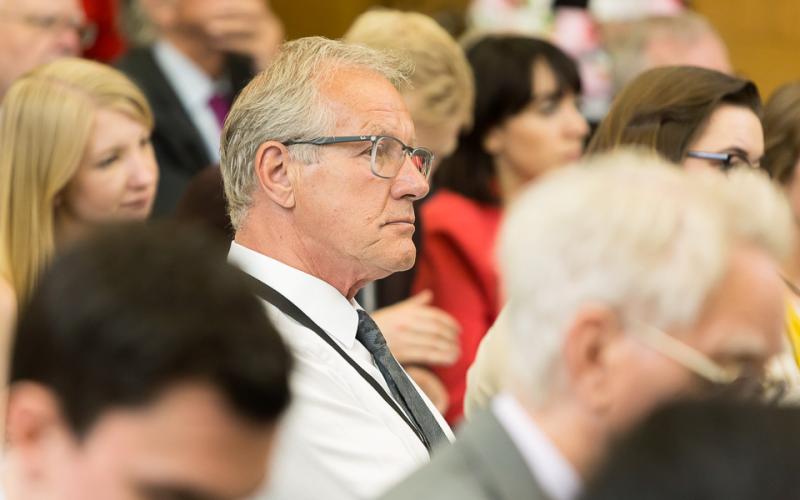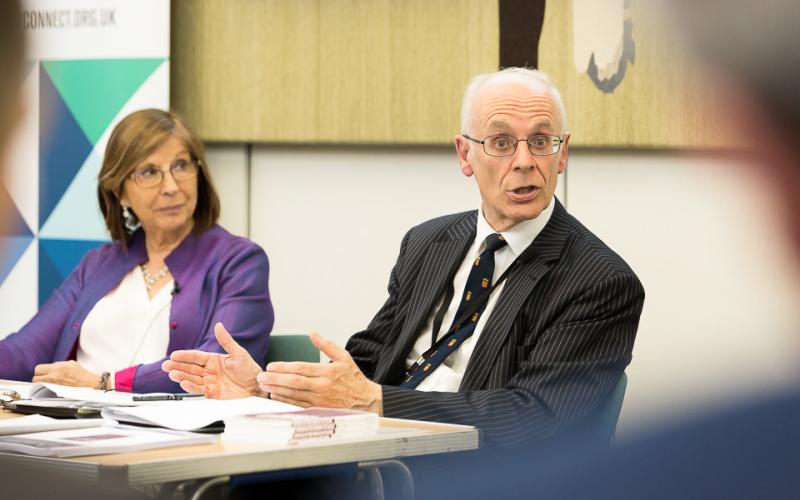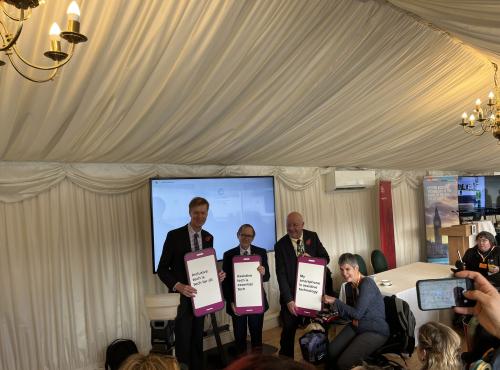Lord Norton & Baroness D'Souza - The House of Lords & Hung Parliament: how big an influence will the Lords have?
Policy Connect convened an 'in conversation' with former Lords Speaker the Rt. Hon the Baroness D'Souza and the Rt. Hon the Lord Norton to discuss what role the House of Lords holds now that we have a hung Parliament, and whether the Lords will have more sway of Parliamentary proceedings as a result.
Baroness D’Souza and Lord Norton began proceedings by discussing the way that the House of Lords works with the House of Commons, particularly in light of the hung Parliament result and balance of power between the Commons’ parties.
Lord Norton commented that the Lords held a complementary role to the Commons. The role of MPs has grown significantly – larger constituencies, with fundamentally different relationship with the media and their constituents. MPs simply don’t have the time required for the scrutinising functions, and thus the Peers have taken on the role of scrutiny. They have the time and expertise to dedicate towards inspecting legislation.
The Chamber has reinvented itself since the moribund institution it was in the 1950s. (Indeed, in the post war period it could be said there was more progression in the Commons, particularly with BME representation in the 70s). Since 2014 Act approximately 60 Peers have left and 2 have been disqualified.
Lord Norton and Baroness D’Souza then went on to discuss the relationship with the Commons more in depth. Lord Norton expressed concern that the House of Lords was not seen positively, despite being a place of relative stability and in depth scrutiny.
Looking forward, particularly with the complexities emerging from Brexit:
- Greater consideration devolution across the piece will be needed – there are Commons committees on each of the Devolved Nations but no one looking at this in the round.
- The Lords should have more of a role in taking evidence from outside of Parliament in the way Public Bill Committees work in the Commons
- The Lords should perhaps consider its appointments more strategically in terms of what gaps there are in its expertise. Also this procedure must be made transparent to maintain public confidence.
- This could then lead to more research capacity – although this would require improved press/public presence to make the case for greater resources in the Lords.
- Here APPGs and NGOs could play an important role – while they can never substitute the official functions of the House – the limited capacity of the Lords means they are often vital in briefing and connecting Peers to the wider world.
